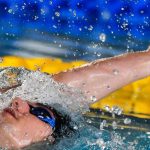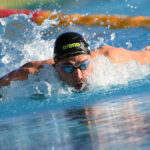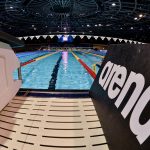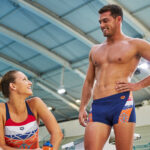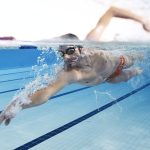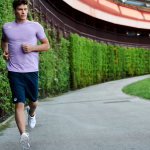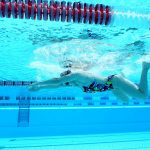Late night training ahead of Rio
A.D.N Swim project (first European program for international swimmers) recently spent two weeks simulating Rio hours, in a bid to understand both the psychological and physical affects the late swim finals at this year’s Olympics could have on their swimmers. We spoke with Andrea Di Nino, Head Coach and Technical director at A.D.N to find out more.
Why did you have your swimmers simulate Rio hours?
The biggest issue facing swimmers in Rio, will be the timing of the evening finals. In fact, it will be the first time in a swimming competition, where the finals will be held at night, so will be a huge shock, both psychologically and physically. Performing at night (10pm), then sitting down to eat at 1am and sleeping at around 2am or 3am will take a toll on many, in particular to multi event swimmers, who could have a potential 6 nights of racing. We have simulated Rio hours in order to prepare our swimmers as best we can, for the physical and psychological effects.
What did you learn from the two weeks?
It was a surprise to learn that some swimmers actually swim faster at night, than during the day. We also identified, in terms of mood, who were morning people and who were night people. Some, for example, usually struggle to wake-up in the morning and need long warm up sessions, but in the evening they were like ‘wow’, completely the opposite. On the flip side, some morning people had great difficulty swimming in the evening.
Was it easy for the swimmers to adapt to the change of hours?
Yes, adaption was quite quick, but it was clear after 10 or 11 days that some swimmers were struggling with fatigue, and even with light training, were finding it increasingly difficult to recover. Medical and physiological studies we conducted did not produce positive feedback on a few.
How will you manage this issue in Rio?
We will try and assist the swimmers by way of nutrition and supplements, as well as giving them a day off where possible, to try and bring them back to a more natural rhythm. During a second simulation we will look in to improving sleep quality, another important factor in relation to sport performance.
So you will be repeating the exercise?
Yes, we will do a second simulation as of Monday 11th January, with special guest, Belarusian swimmer, Evgeny Tsurkin. Our third camp will be held in March, and will be combined with daytime competitions, in order to understand further the affects the hours will have on the swimmers, as well familiarizing them with the routine. By doing this, we hope to recognize and rectify potential problems, in order to prepare to the best of our abilities.
Biggest surprise?
Just how exceptionally well some sprinters performed late at night.
—————
Written by:
Andrea Di Nino
Andrea Di Nino is Head Coach and Technical Director of A.D.N Swim Project, the first European program for international swimmers. The mission of A.D.N is to offer their athletes with the best available tools out there, in order to perform to the best of their abilities.
